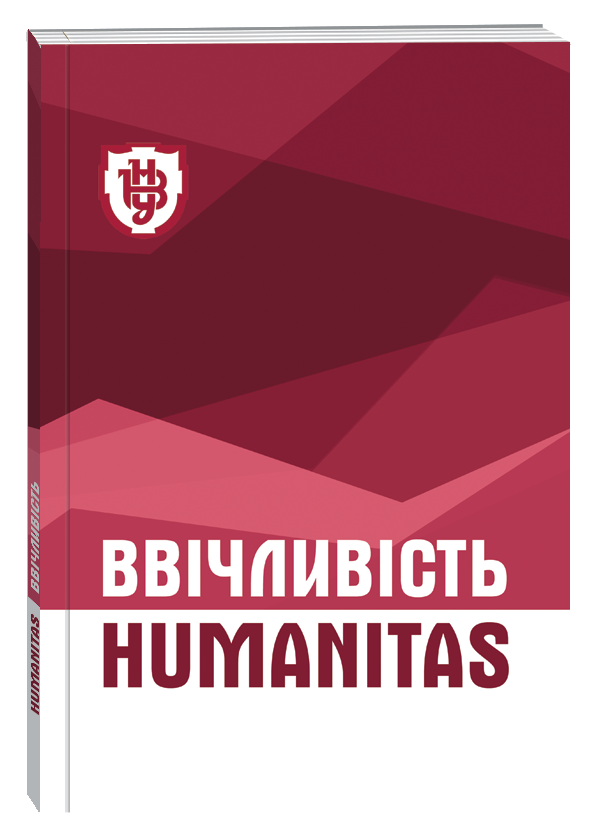МEANING PEDAGOGICAL TOLERANCE IN THE PROCESS OF MOTIVATIONAL COUNSELING
DOI:
https://doi.org/10.32782/humanitas/2024.5.9Keywords:
pedagogical tolerance, motivational counseling, principles of pedagogical tolerance, principles of motivational counseling, tolerant pedagogical communication.Abstract
Changes in the educational and social paradigm involve determining the consistency and systematic nature of the main processes of educational, social and pedagogical activities. The article deals with the issue of relevance of the problem of pedagogical tolerance and the system of value orientations of the individual in the process of motivational counseling. The article highlights the category of "pedagogical tolerance" as a multifaceted quality that is formed in the process of learning and self-education and that includes: respect for the diversity of other people's knowledge, views, and values; developed communication skills to interact and communicate effectively with different people; emotional readiness for constructive dialogue; compromise as a willingness to make concessions to achieve mutual understanding; self-criticism and the ability for self-analysis and self-improvement. It is noted that pedagogical tolerance is regulated by observance of its basic principles in the process of pedagogical and socio pedagogical activities, which in turn contribute to formation of tolerant atmosphere in the process of motivational counseling. The basic principles of motivational counseling are defined. The content components of pedagogical tolerance are emphasized: cognitive, affective, communicative, volitional. The article also states that tolerant educational communication is the foundation of successful motivational counseling. The elements of tolerant pedagogical communication, techniques and methods that should be used in the process of motivational counseling are specified. It is emphasized that understanding the mechanisms of tolerance will allow specialists to create more effective motivational counseling programs in difficult conditions of social change. It is stated that pedagogical tolerance is crucial for the success of the motivational counseling process, as it creates an environment in which a person can create, develop and improve, and achieve his goals.
References
Білоус Т. Виховання толерантності в студентів вищих педагогічних навчальних закладів у процесі вивчення іноземної мови: автореф. дис. на здобуття наук. ступеня канд. пед. наук: спец. 13.00.07 «Теорія і методика виховання». Київ, 2004. 20 с.
Грива О. Соціально-педагогічні основи формування толерантності у дітей і молоді в умовах полікультурного середовища. Київ: ПАРАПАН, 2005. 227 с.
Гайдамащук М. Толерантність як основа формування цивілізованих стосунків. Учитель початкової школи. 2015. № 12. С. 53–55.
Волошина О. Проблема формування толерантності в сучасних педагогічних дослідженнях. Рідна школа. 2016. № 3. С. 4–6.
Матієнко О. Виховання толерантності починається з учителя. Учитель початкової школи. 2017. № 6. С. 27–31.
Савченко О. Вчимося толерантності. Учитель початкової школи. 2019. № 9. С. 4–8.
Чернуха Н. Підготовка педагогів у сучасних соціокультурних умовах: виховання толерантності. Управління освітою. 2018. № 1. С. 7–8.
Miller W.R. Motivational interviewing: preparing people for change / William R. Miller, Stephen Rollnick. 2nd ed.
The Guilford Press, 2011. 241 p.







